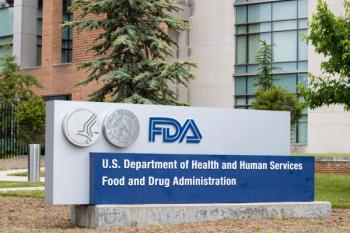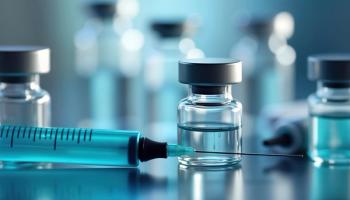
Top 4 Biosimilar Developments of 2021
2021 was an outstanding year for biosimilar medications, as they increased market share and adoption by healthcare providers and the first biosimilar and interchangeable insulin was approved by the FDA. Take a look at Managed Healthcare Executive's top four biosimilar developments of 2021.
2021 was an outstanding year for biosimilar medications, as they increased market share and adoption by healthcare providers and the first biosimilar and interchangeable insulin was approved by the FDA.
Here are Managed Healthcare Executive®’s top five biosimilar developments of 2021:
1. FDA’s approval of the first biosimlar and interchangeable insulin
“The approval of the first interchangeable biologic this year illustrates the progress that both the FDA and manufacturing community have made,” added Christine Simmon, executive vice president of Policy and Strategic Alliances at the Association for Accessible Medicine and executive director of AAM’s Biosimilars Council.
2. Biosimlars produce huge cost savings
The U.S. healthcare system
“Biosimilar competition provides more, and less expensive, options for care, and has contributed to about 10 million days of patient therapy that otherwise would not have been provided,” Simmon said. “We anticipate that the benefits that patients have realized from biosimilars will continue to accrue over the next year and that the growth in savings will continue.”
3. Uptake and acceptance of biosimilars is on the rise
Uptake and acceptance of more affordable, high quality biosimilar medicines have accelerated over the last year, according to Wagner, and there are new developments across a number of key disease areas, said Afton Wagner, Pharm.D., director of federal policy at Sandoz.
“There are now 31 approved biosimilars, including two interchangeable products, 21 of which are launched and available to patients in the US,” Wagner said. “Biosimilars continue to save US healthcare systems and patients billions of dollars year-over-year. Through these savings and increased competition in 2021, we’ve seen more treatment options become available to patients across critical disease areas.”
Simmon added everyone should be encouraged by the advances that biosimilars have made by gaining market share and lowering prices, increasing the savings realized by patients who rely on these life-saving medicines.
4. New policies are advancing biosimilar adoption and education.
Earlier this year, Congress passed the Advancing Education on Biosimilars Act of 2021, which will improve healthcare provider education and awareness of the benefits of biosimilars, according to Wagner and Simmon.
“Misinformation has plagued biosimilars since before the first approval in 2015, which caused patients and providers to question their safety and efficacy,” Simmon said. "(The Act is important) for continuing the progress that has been made in educating the public and empowering the FDA to maintain its role as a leader in ensuring that patients and providers have access to correct information about biosimilars.”
Other
“Currently, providers in Medicare Part B are reimbursed for administering biosimilars at the biosimilar’s average sales price (ASP), plus 6% of the brand-name biologic," Simmon said. "The BIOSIM Act…would increase reimbursement for biosimilars by 2% to ASP+8% and would apply only when the biosimilar’s ASP is lower than the brand-name biologic’s ASP.”
In addition, the Increasing Access to Biosimilars Act (S. 1427/H.R. 2869), which directs the CMS to establish a voluntary, national demonstration project under Medicare Part B to evaluate the benefit of providing a shared savings payment for biosimilars, could also incentivize the use of biosimilars, according to Simmon.
“Under this model, participating providers would receive a portion of the savings for prescribing a biosimilar with a lower ASP than the reference biologic,” Simmon added.
Newsletter
Get the latest industry news, event updates, and more from Managed healthcare Executive.























